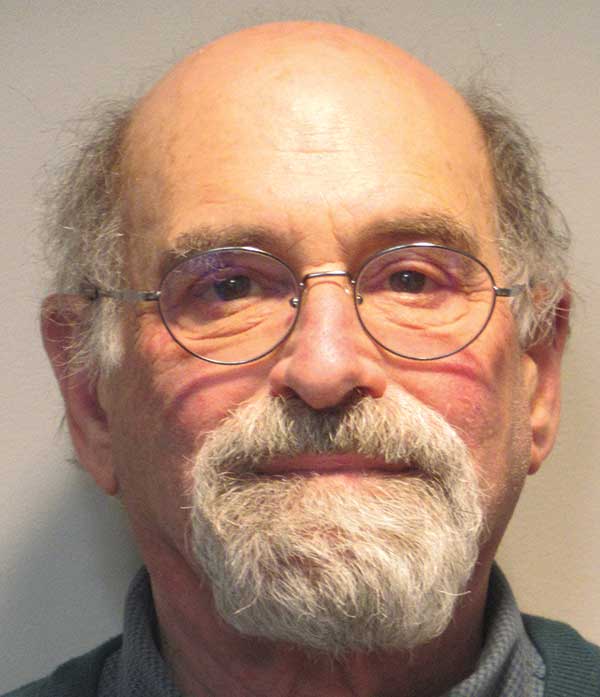First-year seminar program to be revamped for fall semester
Tyrone Shaw
The structure of the first-year seminar as we know it is changing. Northern Vermont University is months away from merging into Vermont State University (VTSU), and this coming fall, first year students will start their college education with Connections Seminar 1 (CNX-1), an adapted version of the first-year seminar.
The focus of CNX-1 courses is to orient students to the academic and co-curricular life of the university, with emphasis on developing the skills and dispositions to be successful at Vermont State University, as well as encouraging a sense of identity on campus.
All first-year students are expected to take their CNX-1 course their first semester, including online-only students. Transfer students will have an exception as long as they have already completed at least 30 credits prior to attending VTSU.
There are three main criteria for a course to qualify as a CNX-1 seminar. It must contain academic content, in addition to the orientation and student support material. That material must integrate with the academic content, not just added as a supplement. The course must also meet the specific learning outcomes of CNX-1.
According to Tyrone Shaw, chair of the NVU-J Department of Writing and Literature and the campus coordinator for first-year seminars, the five specific outcomes of CNX-1 courses include engagement with the university and campus resources and support; acquiring skills necessary to thrive as a student; adopting strategies to learn more efficiently; understanding the value of diversity, equity, and inclusion within the university and beyond; and finally, acquiring awareness of the relationship between the different components of an undergraduate education— the Connections program, the major program, co-curricular activities, and their personal/professional lives.
Shaw has been a part of a group of colleagues from Lyndon, Vermont Tech, and Castleton who have been working hard to develop the CNX-1 component of a new university-wide general education program.
According to Shaw, the first-year seminar has been a tradition on the campuses for well over a decade. “The premise for ours [first- year seminars] was to provide faculty the chance to develop courses that didn’t necessarily fit in the standard offerings. They were intended to be interdisciplinary, probably unconventional, and not offered in the general curriculum,” he said.
Shaw noted that the seven first-year seminars offered last fall will again be offered as CNX-1 seminars in the fall.
Shaw notes that each of the campuses within the future VTSU will still have their own variation of the first-year seminar. “Lyndon’s is discipline based. If you’re a physics major, you would take a specific seminar based around that,”
he said. “We have a different model, but they’re all designed to create learning communities, introduce students to the academic culture, offer additional support, and increase retention.”
While CNX-1 will replace the first-year seminar, besides sharing learning objectives, the approaches to these courses will be up to each campus.
An added component to the CNX 1 courses is a 50-minute block that will increase the credits to four. This block has to do with additional focus on integrating students into the academic community, putting them in touch with all the resources for the material they’re studying.
This additional block will be responsible for one of the four credits, and will enable collaboration with Academic Support, the Library, The Wellness Center, Student Life, Career Services, and more resources around the campuses.
The CNX-1 seminars on the Johnson campus will be held from 10:50 a.m. to 12:05p.m., as the first-year seminars were scheduled this past fall.
On this campus, the additional 50-minute block will be conducted online, asynchronously, making these hybrid courses. “It’s an excellent opportunity to do a pilot study,” Shaw said, adding that this model will provide students with abundant opportunities to become conversant with all aspects of Canvas.
Shaw said the steering committee is committed to allowing flexibility across the campuses in redesigning the first-year seminars to reflect the traditions and identities of each campus.
“I’m really glad that we’ve been able to maintain the distinct identity of those classes and we have increased support from staff on these now,” Shaw said.
The work, however, is far from complete at this point. One outstanding issue is oversight and design of CNX-1 courses for VTSU-Global, which will be the successor to NVU-Online.
“Obviously this needs to be figured out,” Shaw said, “but this remains a question mark at this time.”
CNX-1 is part of the Connections component of the new general education program that will be adopted for next fall.
In the new model, CNX-2 is slated to replace Expo and Analysis, which students would no longer take in their first year; rather, they would take the newly revised class in their sophomore year.
CNX-3 will be formed more along the lines of a senior capstone portfolio, although it hasn’t been finetuned yet.
Due to the campus flexibility built into the design of CNX-1 seminars, Shaw said it is likely that some discipline-specific introductory classes will be developed to meet the CNX-1 criteria.
While he acknowledges it could work, he is ambivalent about going that route.
“Some campuses, and I think it will happen here eventually, are going to take some intro courses such as intro to sociology, or a college writing class and redesign them to be part of the CNX-1 offerings. I can see how it could work, but it gets away from what has been a cherished intentionally interdisciplinary concept here,” Shaw said.
More information on the future of the first-year seminar will be featured as it comes out.



